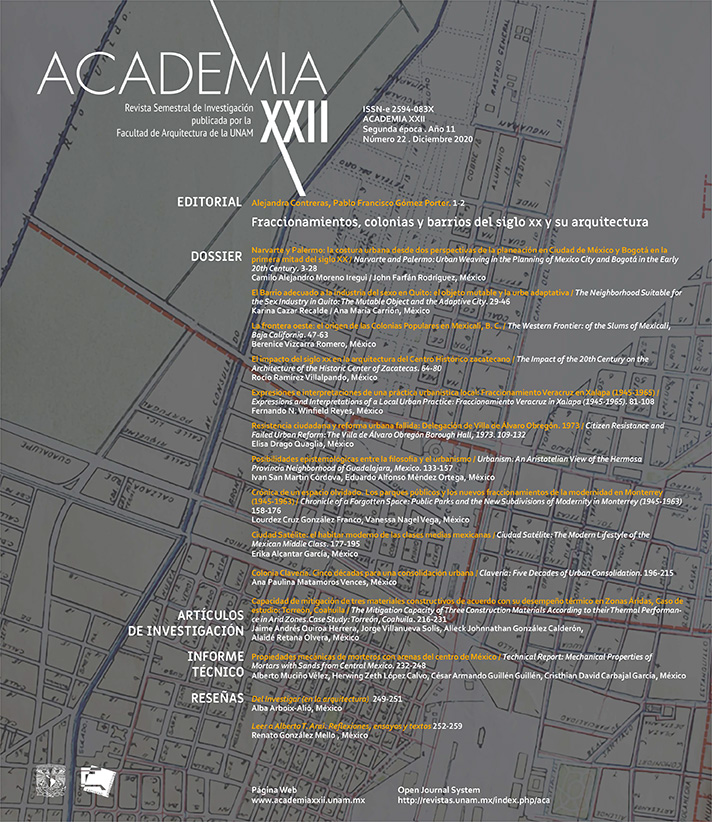Urbanism: An Aristotelian View of the Hermosa Provincia Neighborhood of Guadalajara, Mexico
Main Article Content
Abstract
In this paper, I draw on philosophical notions such as motion, polis and territory, the doctrine of the four causes – formal, material, efficient and final –and the principles of potency and act proposed and developed 24 centuries ago by Aristotle to illuminate contemporary thought in an attempt to devise new and systematic approaches to understanding architecture and urbanism. Arguing for the importance of interdisciplinary rigor, this text presents a case study on urban forms in the city of Guadalajara, Mexico, whose Hermosa Provincia neighborhood is based on a concentric series of streets, at the center of which an enormous temple rises to the heavens. This design is inspired by the cosmogonic vision of a religious group - the Light of the World church, founded in Mexico more than eight decades ago and with tens of thousands of worshippers across five continents. A combined teleological and etiological analysis, interpreted through an Aristotelian lens, will pinpoint links between urbanism, architecture and philosophy that may help overcome systematic limitations mutually imposed by each of these disciplines and, therefore, identify new epistemological possibilities.

